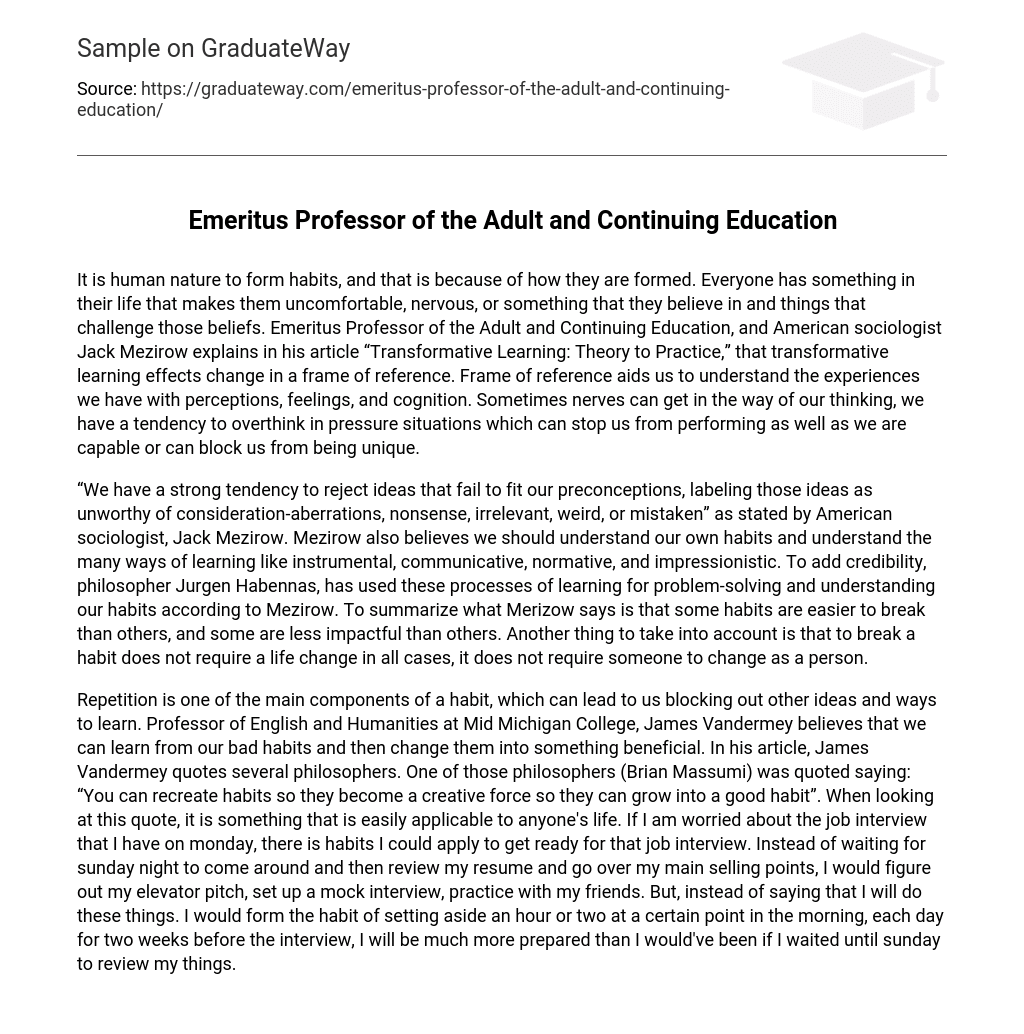It is human nature to form habits, and that is because of how they are formed. Everyone has something in their life that makes them uncomfortable, nervous, or something that they believe in and things that challenge those beliefs. Emeritus Professor of the Adult and Continuing Education, and American sociologist Jack Mezirow explains in his article “Transformative Learning: Theory to Practice,” that transformative learning effects change in a frame of reference. Frame of reference aids us to understand the experiences we have with perceptions, feelings, and cognition. Sometimes nerves can get in the way of our thinking, we have a tendency to overthink in pressure situations which can stop us from performing as well as we are capable or can block us from being unique.
“We have a strong tendency to reject ideas that fail to fit our preconceptions, labeling those ideas as unworthy of consideration-aberrations, nonsense, irrelevant, weird, or mistaken” as stated by American sociologist, Jack Mezirow. Mezirow also believes we should understand our own habits and understand the many ways of learning like instrumental, communicative, normative, and impressionistic. To add credibility, philosopher Jurgen Habennas, has used these processes of learning for problem-solving and understanding our habits according to Mezirow. To summarize what Merizow says is that some habits are easier to break than others, and some are less impactful than others. Another thing to take into account is that to break a habit does not require a life change in all cases, it does not require someone to change as a person.
Repetition is one of the main components of a habit, which can lead to us blocking out other ideas and ways to learn. Professor of English and Humanities at Mid Michigan College, James Vandermey believes that we can learn from our bad habits and then change them into something beneficial. In his article, James Vandermey quotes several philosophers. One of those philosophers (Brian Massumi) was quoted saying: “You can recreate habits so they become a creative force so they can grow into a good habit”. When looking at this quote, it is something that is easily applicable to anyone’s life. If I am worried about the job interview that I have on monday, there is habits I could apply to get ready for that job interview. Instead of waiting for sunday night to come around and then review my resume and go over my main selling points, I would figure out my elevator pitch, set up a mock interview, practice with my friends. But, instead of saying that I will do these things. I would form the habit of setting aside an hour or two at a certain point in the morning, each day for two weeks before the interview, I will be much more prepared than I would’ve been if I waited until sunday to review my things.





